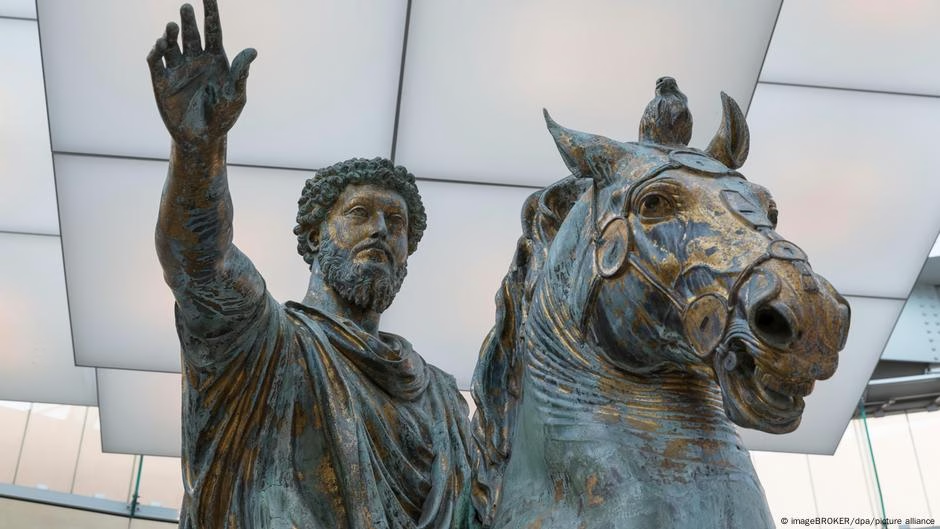Reflections like these are found in the “Meditations” of Roman emperor Marcus Aurelius (121-180 C.E.), who never intended these contemplations for publication. Instead, he penned them purely for self-reflection, and yet they have become among the most widely read writings after the Bible and the Quran, translated into numerous languages around the world.
Marcus Aurelius, known today as a philosopher-king, ruled through a period marked by crises. He ascended the throne in 161 C.E., years before the Marcomannic Wars (166-180 C.E.) — involving the Germanic Marcomanni tribes — which would profoundly shake the Roman Empire. Economic troubles, social unrest, and the Antonine Plague spread throughout Roman territory.

‘You possess control over your mind, not external events’
Equanimity was a fundamental principle for Marcus Aurelius, a proponent of the Stoics, founded by the Greek Zeno of Citium in 300 B.C.E.
Marcus Aurelius aimed for virtuous governance but grappled with: What constitutes good leadership?
This question, tiller relevant today, was pivotal in his “Meditations”. However, during his time, his writings, never intended for public eye during his era, remain private reflections made in the quietude of his chambers.
Aurelius attained the image of the philosopher-king after his “Meditations” were published posthumously between the 15th and 16th centuries.
‘You have the power over your mind, not external events’
For him, equanimity was a major life principle, inheriting from the Stoic philosophy.
Skiba, in her article, challenges the viewers to reflect on leadership in crisis-ridden, polarized times, highlighting how Marcus Aurelius’ thoughts remain universally relevant.

Good leadership according to Marcus Aurelius
According to Skiba, good governance is characterized by the cardinal virtues of wisdom, justice, prudence, and moderation, with a strong orientation towards the common good.
Reuter adds that Marcus Aurelius would likely not consider figures like Donald Trump to be good leaders or role models.
Reflecting the norms of his time, Aurelius, like his contemporaries, did not challenge the existence of slavery or unequal rights for women and non-Romans.
To maintain the empire’s security, Aurelius waged brutal wars but also endeavored to make just judgments and prioritize the state’s interests.
Establishing the Porta Nigra in Trier, a recognized symbol of the city today, underscores Aurelius’ commitment to his citizens’ protection.
A fragment from a 15th-century copy of ‘Meditations’ showcases the longevity of Aurelius’ thoughts on life’s values.

‘A simple life is required for a happy life’
Aurelius lived an ostensibly modest life, auctioning off personal assets during financial crises, an unprecedented action among Roman emperors.
His ‘Meditations’ serve as a practical guide for a virtuous life, resonating with the concerns of young generations today.
The exhibition in Trier taps into the current interest in Aurelius, aiming to inspire visitors worldwide to reflect on their existence and society through his philosophical contributions.
“Each society builds on individuals, and if each inquires into such philosophical and political questions, then it functions as a whole,” Skiba pointedly notes.
This piece was originally published in German.







